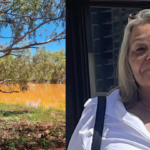Fu@#en Hell! … Can I be fined for swearing?

Police have an enormous amount of discretion when it comes to fining or sending people to court for swearing – as long as:
- the language would be considered offensive by a ‘reasonable person’,
- is uttered in a public place (including the footy or even at the pub) or in or near a school, and
- you have no “reasonable excuse for conducting… [yourself] in the manner alleged”.
Offensive language laws are not a new thing. Offensive language has been a crime since at least the 1800s when it was not acceptable to say words like ‘bastard’ in the presence of women and children.
In fact, some historians will tell you that there were similar laws as far back as Roman times, simply because, as humans, we express ourselves through language and sometimes the language we use is deemed ‘inappropriate’.
Currently, the law decrees ‘public places’ as inappropriate venues for swearing, as well as school grounds.
Criminal Infringement Notices
In New South Wales, Police have had the power to issue criminal infringement notices and on-the-spot fines of up to $150 for use of offensive language since 2008.
However, in January 2014, as one of a range of different measures it introduced as part of its tough stance on anti-social behaviour and alcohol fuelled violence, the NSW Government took this law one step further by increasing the fine to $500.
If you are issued with a criminal infringement notice, you can either choose to pay the fine or elect to take the matter to court.
Court Attendance Notices
Alternatively, police have discretion to send a person to court for offensive language charges, where they face a criminal record, and a maximum fine of $660 or 100 hours of community service.
Other States
New South Wales is not alone in its strong stance against obscene language.
In South Australia you can be issued with a fine of up to $250. In Queensland and Victoria, the charge can carry a prison term of up to six months. While in New South Wales the definition of ‘offensive language’ is not specifically outlined, in Queensland and Victoria it is defined as: disorderly, offensive, threatening, indecent, and violent.
The Test
NSW courts have found that the use of words like ‘cunt’ and ‘fuck’ may constitute offensive language in certain circumstances, and that ‘flipping the bird’ is capable of amounting to offensive conduct.
The test for each particular situation is whether the words or phrase would wound the feelings or arouse disgust or outrage in a reasonable person: Ball v McIntyre (1966) 9 FLR 237, Smith [1974] 2 NSWLR 586. In making that determination, the hypothetical person is considered to be reasonably tolerant and contemporaneous: Spence v Loguch (CN [103]).
Public Place
Keep in mind that the definition of ‘public place’ is extremely broad – being a place or even just a part of a premises, that is open to the public, or is used by the public; which can include a theatre, sports stadium or even a licensed premises. These are all places where swearing can lead to fines or even court attendance notices.
Sociology and Language
Some experts say that anti-swearing laws never have been effective, and never will be, and that there’s too much uncertainty and confusion about what’s ‘acceptable’ and what’s not.
Another debate focuses on the potency of language and it’s real effects on society. Sure, there is absolutely no doubt that words can be offensive, and that there’s a line to be drawn with “hate speech”, but along with the old proverb ‘sticks and stones will break my bones but words will never hurt me,’ some might argue we’re much better off cultivating a society where its more acceptable to argue with your voice, than your fists.
Language experts point out that there is a kind of ‘stress release’ that comes from ranting with expletives, which may be considered a good thing for easing frustration and tension and providing pain relief.
Looking back through the ages, language evolves, and the credence attached to words is constantly changing. The offensiveness of a particular statement or word can only be defined by the power that we as individuals give it, and something that is offensive to one person, may not necessarily be offensive to another.
With this in mind, perhaps police need to use a large dose of common sense and subjective judgement before sending people to court or issuing fines for bad language.






